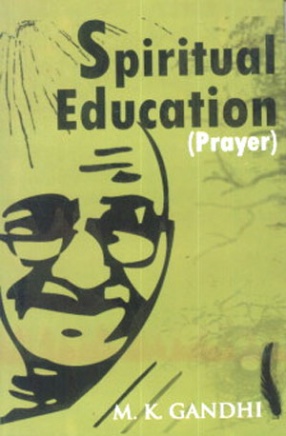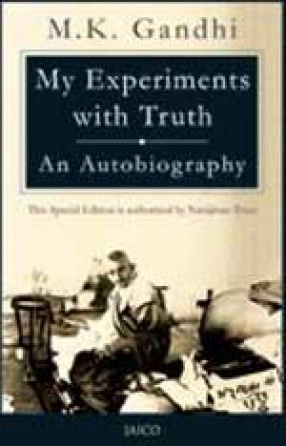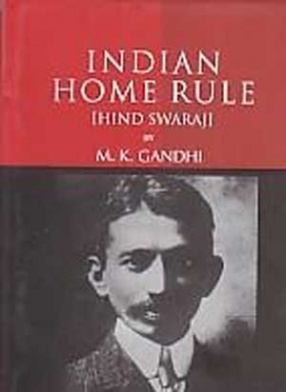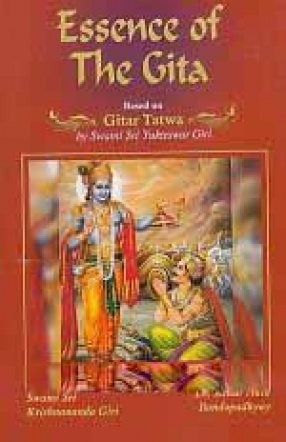Spiritual Education: Prayer
Synopsis
Mahatma Gandhi’s life synthesized spirituality and political activism. Gandhi believed in human dignity and freedom; he fought injustice with words, ideals, and self-discipline. Gandhi’s unique philosophy helped free India and influenced generations of peace activists.
An important spiritual goal pursued by Gandhi was austerity, particularly based on control of bodily appetites. As a young man, Gandhi began using food in experiments to test his willpower: ‘As I searched myself deeper, the necessity for changes both internal and external began to grow on me... I saw that the writers on vegetarianism had examined the question very minutely, attacking it in its religious, scientific, practical, and medical aspects. The test of his willpower and subsequent control of his will were disciplines that Gandhi cultivated in himself for the rest of his life. Later, this same austerity would help Gandhi to lead his people by example. Gandhi’s curiously and his desire to understand and improve himself led him to spend hours studying religious books and contemplating philosophical ideas. He found the Bhagavad-Gita, the sacred text of the Hindus, especially inspiring. This text contained lessons in discipline and selflessness, mercifulness, and freedom from greed or jealousy. Yet certain aspects of Hinduism did not appeal to Gandhi. He rejected the notion that to be devout meant to live quiety, meditating as some mystic Hindus did. Instead, Gandhi felt the need to be act, ‘The man of religion conducts such activities as are sent by God with such resources as God places at his disposal’. Despite his subsequent activism in South Africa and later in India, Gandhi never succumbed to the temptation of moral corruption that besets most public figures. Gandhi was able to hold fast to his spiritual ideals because of the flexibility that Hinduism affords its adherents. Hinduism has no established church, no liturgy, no special form of worship, no revealed truth beyond that in the Vedas, no one founder, no one God. A Hindu could worship any number or combination of a million divinities. The Hindu is concerned with finding a perfect balance and comprehension of the three divine forces of life: Brahma, Shiva, and Vishnu. Gandhi himself believed that his own Supreme God was Truth, and that truth was based on social justice and universal mercy. When Gandhi returned to India, he set up an ashram, similar to one he had established in South Africa. In ashrams, or self-contained communities, religious Hindus had long retreated form the outside world to meditate about spiritual matters.
Read more
An important spiritual goal pursued by Gandhi was austerity, particularly based on control of bodily appetites. As a young man, Gandhi began using food in experiments to test his willpower: ‘As I searched myself deeper, the necessity for changes both internal and external began to grow on me... I saw that the writers on vegetarianism had examined the question very minutely, attacking it in its religious, scientific, practical, and medical aspects. The test of his willpower and subsequent control of his will were disciplines that Gandhi cultivated in himself for the rest of his life. Later, this same austerity would help Gandhi to lead his people by example. Gandhi’s curiously and his desire to understand and improve himself led him to spend hours studying religious books and contemplating philosophical ideas. He found the Bhagavad-Gita, the sacred text of the Hindus, especially inspiring. This text contained lessons in discipline and selflessness, mercifulness, and freedom from greed or jealousy. Yet certain aspects of Hinduism did not appeal to Gandhi. He rejected the notion that to be devout meant to live quiety, meditating as some mystic Hindus did. Instead, Gandhi felt the need to be act, ‘The man of religion conducts such activities as are sent by God with such resources as God places at his disposal’. Despite his subsequent activism in South Africa and later in India, Gandhi never succumbed to the temptation of moral corruption that besets most public figures. Gandhi was able to hold fast to his spiritual ideals because of the flexibility that Hinduism affords its adherents. Hinduism has no established church, no liturgy, no special form of worship, no revealed truth beyond that in the Vedas, no one founder, no one God. A Hindu could worship any number or combination of a million divinities. The Hindu is concerned with finding a perfect balance and comprehension of the three divine forces of life: Brahma, Shiva, and Vishnu. Gandhi himself believed that his own Supreme God was Truth, and that truth was based on social justice and universal mercy. When Gandhi returned to India, he set up an ashram, similar to one he had established in South Africa. In ashrams, or self-contained communities, religious Hindus had long retreated form the outside world to meditate about spiritual matters.
34.20
30.78
$
38.00 $
Free delivery Wolrdwidе in 10-18 days
Ships in 1-2 days from New Delhi
Membership for 1 Year $35.00
Get it now and save 10%
Get it now and save 10%
BECOME A MEMBER
Books by the same author











Bibliographic information